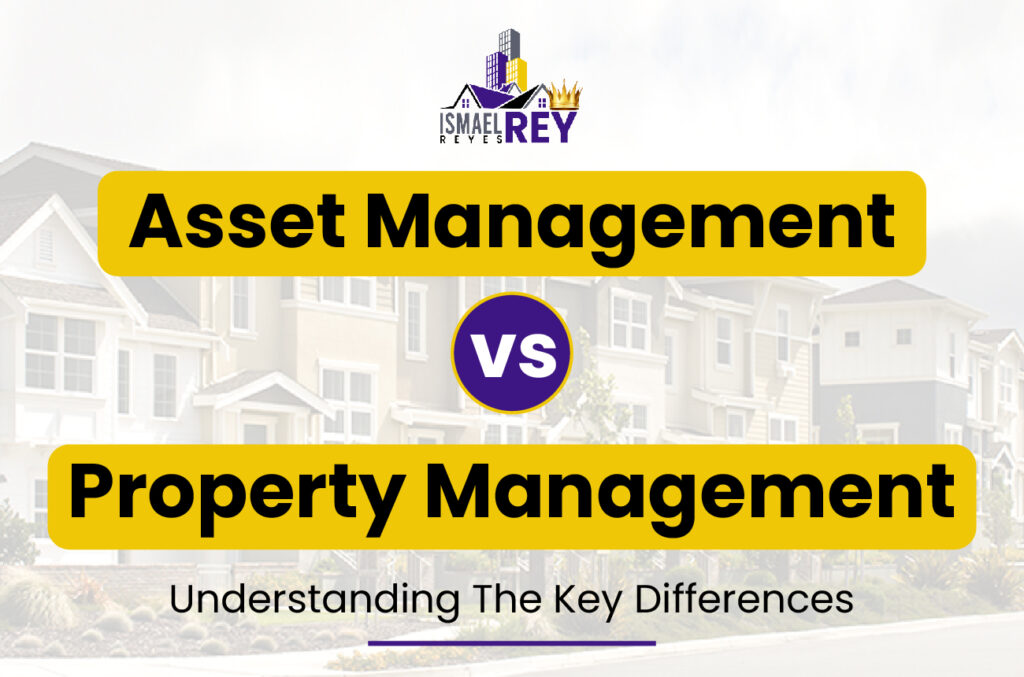Asset Management vs Property Management: Understanding the Key Differences

Asset management and property management are both crucial aspects of the real estate industry, but they serve different purposes and involve distinct responsibilities. In this article, we will explore the differences between asset management and property management, shedding light on their respective roles, benefits, challenges, and best practices.
What is Asset Management?
Asset management refers to the strategic and comprehensive management of a real estate portfolio to maximize its value and returns. It involves analyzing, acquiring, operating, maintaining, and disposing of assets in a way that aligns with the owner’s goals and objectives. Asset managers focus on long-term strategies to enhance the overall performance and profitability of the portfolio.
The Role of an Asset Manager
An asset manager is responsible for making informed decisions regarding the acquisition and disposition of properties within a portfolio. They conduct thorough market research, assess potential risks, and develop strategies to achieve the owner’s financial objectives. Asset managers work closely with property managers to ensure that the properties are well-maintained and meet performance targets.
Benefits of Asset Management
Effective asset management offers several advantages, such as increased property value, risk diversification, optimized cash flow, and enhanced decision-making based on data-driven insights. Moreover, asset management provides a holistic view of the entire real estate portfolio, enabling owners to make informed decisions for the long-term.
Types of Assets Managed
Asset managers handle various types of assets, including residential, commercial, industrial, and mixed-use properties. They may also oversee financial assets such as real estate investment trusts (REITs) and mortgage-backed securities (MBS).
Key Challenges in Asset Management
Asset management comes with its own set of challenges, such as market fluctuations, regulatory changes, and economic uncertainties. Balancing risk and reward while maintaining the desired portfolio performance can be complex and demanding for asset managers.
What is Property Management?
Property management focuses on the day-to-day operations and maintenance of individual properties within a real estate portfolio. Property managers handle tenant relations, property maintenance, rent collection, and lease agreements, among other responsibilities. Their primary aim is to ensure that the properties are well-maintained and generate steady income.
The Role of a Property Manager
A property manager acts as the intermediary between property owners and tenants. They are responsible for marketing vacancies, screening potential tenants, addressing maintenance issues, and ensuring that the properties are compliant with local regulations.
Benefits of Property Management
Property management provides property owners with peace of mind, as they can delegate the daily tasks and responsibilities of property upkeep to a professional. Additionally, property managers can help maintain high tenant satisfaction, reducing tenant turnover and vacancy rates.
Property Types Managed
Property managers oversee various types of properties, including residential rental properties, commercial spaces, vacation rentals, and homeowner associations.
Key Challenges in Property Management
Property management involves handling tenant-related issues, maintenance emergencies, and legal matters, which can be demanding and time-consuming. Property managers need to be adept at problem-solving and multitasking to ensure the smooth operation of the properties they oversee.
Asset Management vs Property Management: A Comparative Analysis
Ownership and Responsibility
Asset management deals with the overall portfolio and its performance, while property management focuses on individual properties and their day-to-day operations.
Focus and Objectives
Asset management emphasizes long-term strategies and financial goals, while property management prioritizes tenant satisfaction and property maintenance.
Skills and Expertise Required
Asset managers need strong financial and analytical skills, as well as a deep understanding of real estate markets. Property managers should excel in communication, organization, and tenant management.
Income Generation
Asset management aims to optimize the overall portfolio’s income and returns, while property management focuses on maximizing rental income and occupancy rates for individual properties.
Risk Management
Asset management involves mitigating risks associated with the entire portfolio, while property management focuses on managing risks related to individual properties and tenants.
Performance Measurement
Asset management relies on key performance indicators (KPIs) to evaluate portfolio performance, whereas property management uses metrics like occupancy rates and tenant satisfaction.
When to Use Asset Management
Asset management is ideal for property owners with diverse real estate portfolios and long-term investment objectives. It is suitable for investors looking to optimize their entire portfolio’s performance and maximize returns.
When to Use Property Management
Property management is necessary for owners who want professional assistance in handling day-to-day property operations, particularly when dealing with multiple tenants and maintenance tasks.
Best Practices for Effective Asset and Property Management
- Regularly assess and adjust portfolio strategies based on market conditions.
- Maintain open and transparent communication with stakeholders.
- Conduct thorough due diligence before acquiring new properties.
- Implement sustainable and cost-effective property maintenance practices.
- Stay updated on local regulations and compliance requirements.
- Leverage technology and data analytics to inform decision-making.
Conclusion
In conclusion, asset management and property management play distinct but complementary roles in the real estate industry. Asset management focuses on optimizing the performance of an entire portfolio, while property management ensures the smooth day-to-day operations of individual properties. By understanding the differences between these two functions and employing best practices, property owners can achieve long-term success and maximize their real estate investments.
FAQs
Effective asset management can lead to increased property value, risk diversification, optimized cash flow, and informed decision-making for long-term success.
Property management services are beneficial for property owners who want professional assistance in managing day-to-day property operations, especially with multiple tenants.
Asset managers handle various types of assets, including residential, commercial, industrial properties, and financial assets like REITs and MBS.

